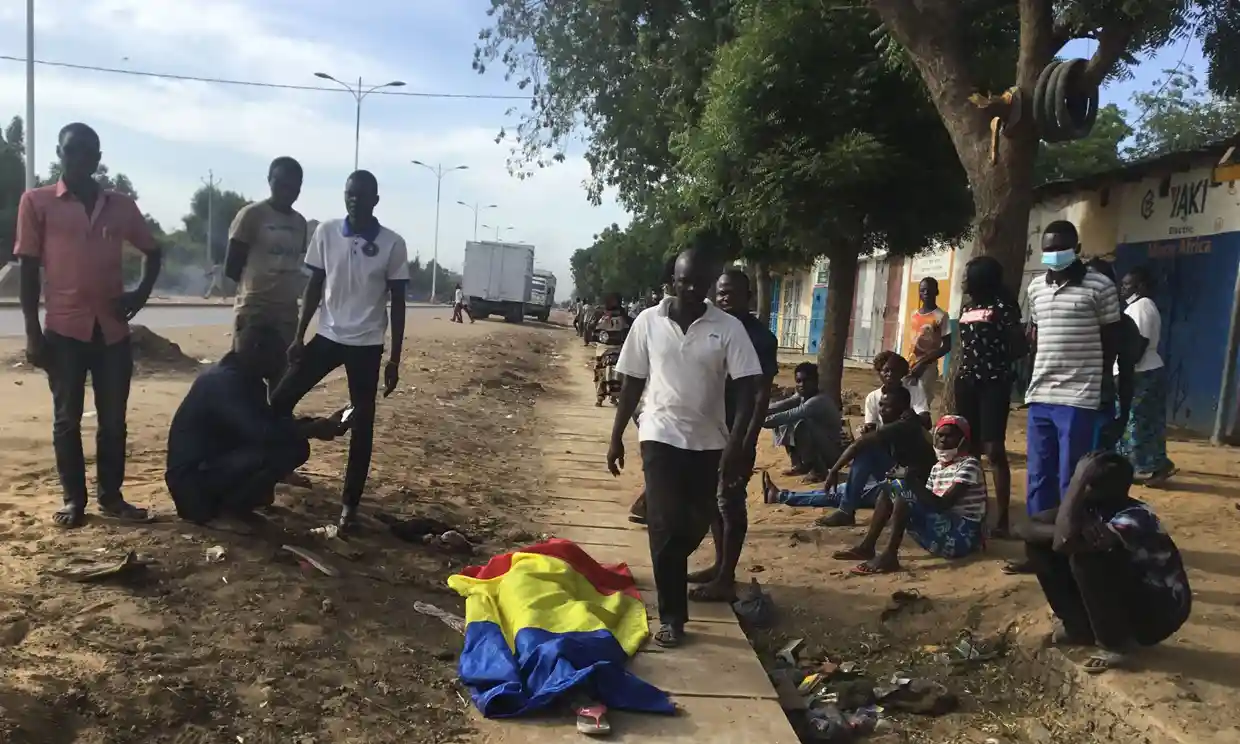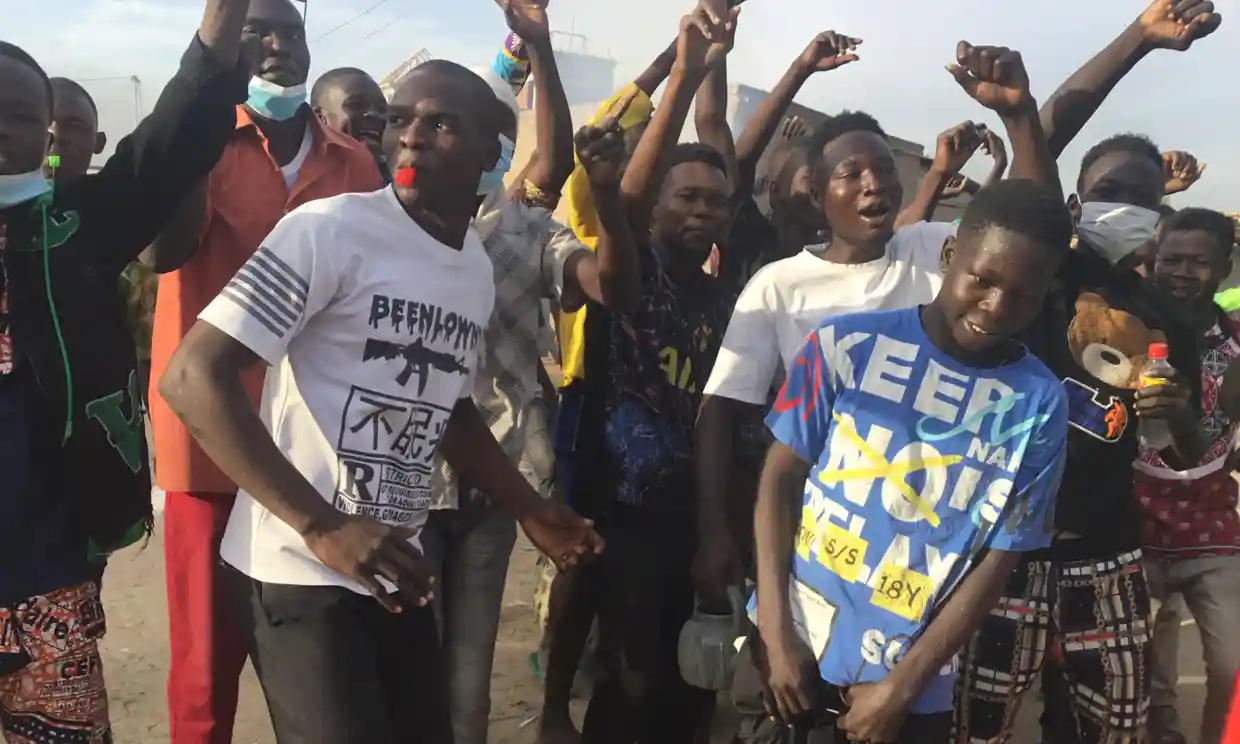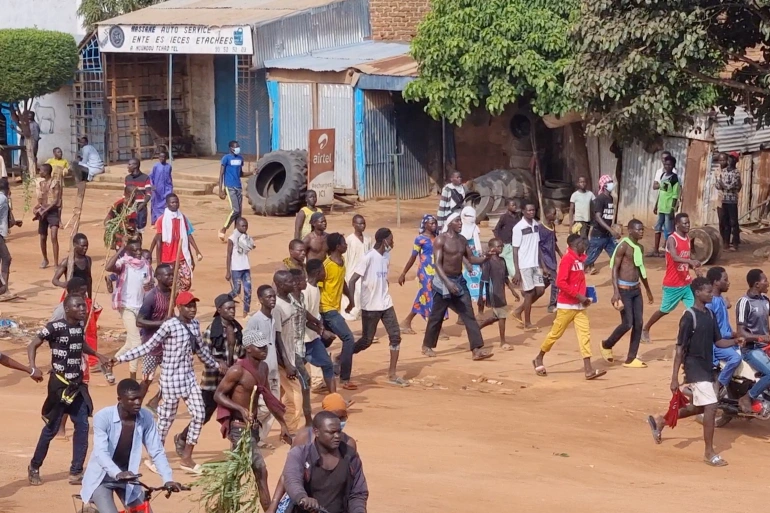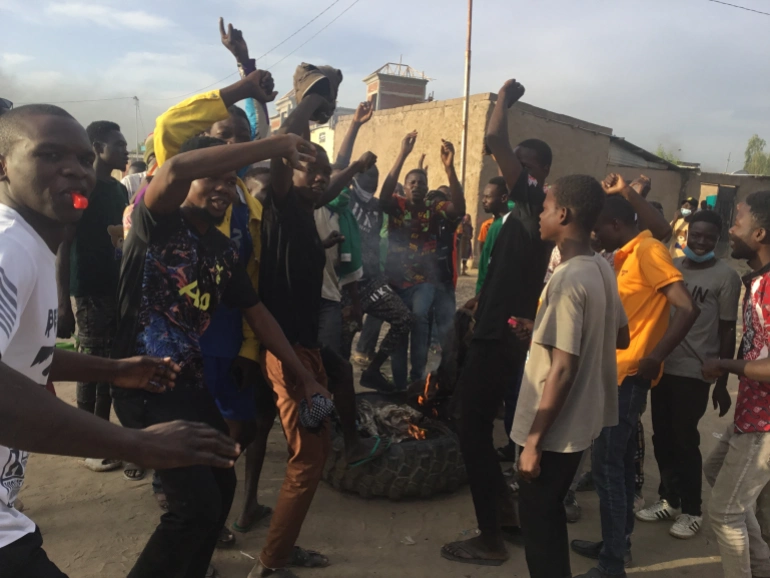
Security forces in Chad’s capital, N’Djamena, have violently dispersed banned protests calling for a quicker transition to democratic rule, leaving at least 50 dead and dozens injured, according to the country’s prime minister.
Palls of black smoke could be seen in some areas in N’Djamena and the crack of teargas grenades could be heard throughout much of the day. Several roads had been blocked with barricades and burning tyres and most shops closed their doors to avoid looting.
The prime minister, Saleh Kebzabo, gave the death toll at a news conference where he claimed security forces were acting in self-defence.
“What happened today is an armed popular uprising to seize power by force and those responsible for this violence will face justice,” said Kebzabo, the National Union for Democracy and Renewal (UNDR) party president who was named prime minister last week after his predecessor resigned to pave the way for a new administration. “The demonstrators had firearms and they are considered rebels.”
Kebzabo later told the Guardian over the phone that he had ordered the main opposition Transformers party and a coalition of opposition parties and civil society organisations called Wakit Tama to suspend activities, alleging Transformers had “led a rebellion in the south and started killing people”.
Opposition parties also put the death toll at about 50, though the figures have not been confirmed independently.
A government spokesperson earlier said 10 police officers were among the dead. The UNDR vice-president, Celestin Topona, told reporters that the UNDR party headquarters were attacked by protesters and set on fire.
Chad has been on edge since the sudden death of the president, Idriss Déby, while visiting troops fighting rebels in April 2021. There has been resistance to a transitional military council headed by Déby’s son, Mahamat Idriss Déby, who took power in the vast central African country after the president’s death and pushed back elections to October 2024.
Critics are demanding a swifter return to democracy and a change in government after Déby ruled the impoverished desert country with an iron fist for three decades.
The demonstration on Thursday in N’Djamena was called to mark the date when the military had initially promised to hand over power, and took place in defiance of a government ban. Casualties included a local journalist who was shot and died from his injuries. The Chadian Red Cross said it had deployed 10 teams to provide first aid and taken “dozens” of injured people to hospital.
Succès Masra, the leader of the Transformers party, said from the capital that the death toll was high. “I call on the international community to intervene to protect the Chadian people,” said Masra, who said he was in hiding. “They killed so many protesters today, my team has been counting them, some of them are in the south, and many here in the capital.”
One protester said he saw 30 people being shot, and some killed. “We took to the streets today to protest peacefully but plain-clothed armed forces started shooting at us. I counted 30 people being injured, some of them are already dead … They lost a lot of blood,” said the protester, who did not want to be named.
Protests also took place in Moundou in the south.
Enrica Picco, the Central Africa director for the International Crisis Group, said: “We are seeing the military junta holding on to power very tightly [in Chad]. For the moment, civil society and the opposition don’t really have the capacity to overthrow them. We will see more and more repression and that might lead to destabilisation eventually.”
Experts said the turmoil in Chad underlined the deep political challenges facing the troubled Sahel region that has experienced a series of coups d’état in key states in recent years as rulers struggle with surging extremist violence and deep social problems.
Chad’s security forces have cracked down on several civil society and opposition-led protests denouncing the military takeover and France’s backing of the transitional government, sometimes causing deaths in the process. In May, police fired teargas and used water cannon to disperse anti-French protests that included the destruction of French-linked businesses.
Chad has had a long history of coups and political turmoil since it gained independence from France in 1960. During his long stay in power, the elder Déby fought off several attempts to unseat him by rebels crossing from Libya and Sudan. He was supported by France, which deemed him a strong ally in its campaign against jihadism in the Sahel. France swiftly endorsed his son as his successor.
But the country’s apparent displeasure at Mahamat Idriss Déby’s push to cement power was visible at the 10 October inauguration ceremonies, where France, like the EU, was represented only by an ambassador.
Agence France-Presse contributed to this report
























